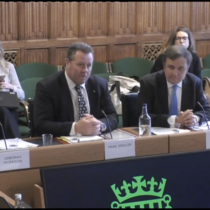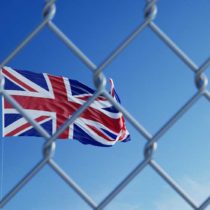Think tank criticises absence of animal welfare safeguards in new UK Trade deals
A new report from independent think tank ResPublica has exposed a number of flaws in the UK’s recent trade deals with Australia and New Zealand that open the door to food produced to lower standards of animal welfare.
It notes the fact that there are no enforceable safeguards in either agreement that can prevent meat produced to lower standards potentially flooding the UK market and undercutting our own farmers. Instead, both agreements contain only watered-down commitments to ‘provide a forum for ongoing cooperation’ on animal welfare standards, which can easily be disregarded.
The authors are highly critical of the concerning precedent these two free trade agreements have set and how it will frame future deals with even bigger trading partners.
The report offers several recommendations for future trade policy development. In particular it stresses: “Trade liberalisation in the form of tariff and quota reductions should be linked to meeting environmental and animal welfare standards in production. Additionally, on the most important issues, the UK should seek to control imports not only on the grounds of the safety of the final product, but also on the basis of how it has been produced.”
But this may be easier said than done. The report recommends that the provisions of WTO Article XXa be used to implement trade restrictions on the basis of animal welfare. However, as BMPA’s Trade Policy Advisor, Peter Hardwick points out: “WTO has only once previously found in favour of trade restrictions based on a welfare issue that was in relation to EU restrictions on products derived from seal hunting; an extreme example.”
Cases like this can easily get mired in subjective arguments to the point that no WTO ruling is possible. A good example is the practice of mulesing which is commonly used in Australia. According to the RSPCA, “Mulesing is a painful procedure that involves cutting crescent-shaped flaps of skin from around a lamb’s breech and tail…. The resulting wound, when healed, creates an area of bare, stretched scar tissue. Because the scarred skin has no folds or wrinkles to hold moisture and feces, it is less likely to attract blowflies. This makes mulesed sheep less susceptible to flystrike.”
Peter Hardwick explains how cases like this brought before the WTO can reach an impasse: “Mulesing may be nasty and unacceptable to a lot of people, but in an argument at WTO over public morals, which is what XXa is about, a counterargument over flystrike would be potent. The issue of public morals is very often subjective but, that said, the report rightly says that the UK must try harder and has signally failed to do so in any substantial way within the trade deals concluded so far.”





